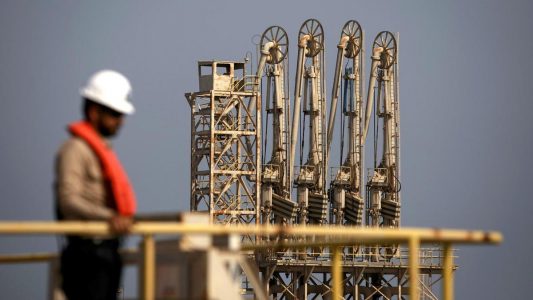
Saudi Arabia’s oil industry is targeted by terrorist groups
It was dawn on January 26, 1991 when four Iraq warplanes, supported by an aerial refuelling tanker, took off on what was expected to be a suicide mission.
Their target was Ras Tanura, a major port on the Arabian Gulf and the operating headquarters for Saudi Aramco, the world’s largest oil company.
Flying two Mirage F1 fighters carrying incendiary bombs and Exocet missiles, and supported by Russian-built MiG-23s, the objective was to knock out or seriously disable Saudi oil production.
It was the Gulf War, when Saudi Arabian and the US were allies in the coalition against Saddam Hussein after his invasion of Kuwait.
A successful attack would be major morale booster for the Iraq forces, as well as creating turmoil in the world’s economy with the potential loss of seven million barrels of oil a day.
In the event, the mission failed – but only just. Flying at low altitude and high speeds, the jet successful refuelled at an altitude of 100 metres, until they reached Saudi airspace.
It was here they were detected by American air defences. A squadron of Saudi F-15 was sent to intercept, causing the Mirage escorts to flee.
The lead Saudi F-15 then managed to shoot down the remaining MiGs with Sidewinder missiles in just 30 seconds.
Both Iraqi pilots were killed and Captain Iyad Al Shamrani of the Royal Saudi Airforce became a national hero. The bombers had only been minutes from their target.
At the heart of Saudi Arabia’s economy, its oil industry has long been a tempting target for the country’s enemies, and especially terrorist and extremist groups. In 1977 a three day fire on the main Aramco pipeline had cut oil production by two thirds and cost as much as $100 million. Sabotage was ruled out.
In August 1987, another serious fire broke out after an explosion at a liquid petroleum plant in Ras Tanura. At the time, the Saudi authorities claimed it had been caused by an electrical fault, but it is since thought to have been the start of a campaign by Hezbollah Al Hejaz, a pro-Iranian terrorist organisation operating in Saudi’s eastern provinces.
The following March, bombs went off again at Ras Tanura, and the SADAF petrochemical plant in Jubayl, with Hezbollah Al Hejaz claiming responsibility. Several militants were captured following a firefight which left several police dead and wounded, and executed that September.
The rise of Al Qaeda saw a new series of attacks that targeted Westerners working in Saudi Arabia.
In the first of two attacks in 2004, militants used fake security passes to gain access to a petrochemical plant in the Red Sea port of Yanbu’ al Bahr on May 1.
Once inside, they stormed the offices of a Swiss engineering company, killing six oil industry workers, including two Americans and two Britons, as well as member of the Saudi National Guard.
A second, even more serious attack, took place on May 29, 2004. This time militants armed with guns and bombs attacked oil installations and a residential compound in the Eastern province city of Khobar, home to many Aramco workers.
In a rampage that lasted 25 hours, they killed 22 foreign workers from nine countries, including eight from India. Describing themselves as the ‘Jerusalem Brigade’, the Al Qaeda-linked terrorists were said by witnesses to have separated non-Muslim employees from Muslim colleagues for execution.
Saudi special forces eventually rescued several dozen foreigners, although not before the attackers had managed to escape.
The two attacks saw many foreign workers leave the country and pushed up world crude oil prices by over six per cent.
Two years later, in February 2006, it was reported that security guards at the Abqaid oil processing plant had stopped an attack using two explosive packed pick-up trucks on a suicide mission. The plant processes more than 60 per cent of Saudi oil production but failed when the explosives detonated prematurely.
In 2016, the execution of a Shia cleric Nimr Al Nimr, on charges of taking up arms and disobeying the Saudi rulers, saw disturbances in the Eastern Provinces that including setting fire to a bus carrying 49 Aramco employees to work.
Not all the attacks on Saudi oil interests have involved guns or bombs. In August 2012, a computer virus known as Shamoon was uncovered, with Aramco taking its network off-line, saying it was only a precaution. The virus was said to be capable of wiping files and rendering computers useless.
The attackers were never identified, and in August, 2017 another malware attack was reported to have taken overrun the safety systems of a major industrial facility that was identified by a leading US security agency as Aramco, and pointed the finger at Iranian hackers.
A statement from Aramco later denied that security at any of its plants had been attacked or breached.
Source: The National





